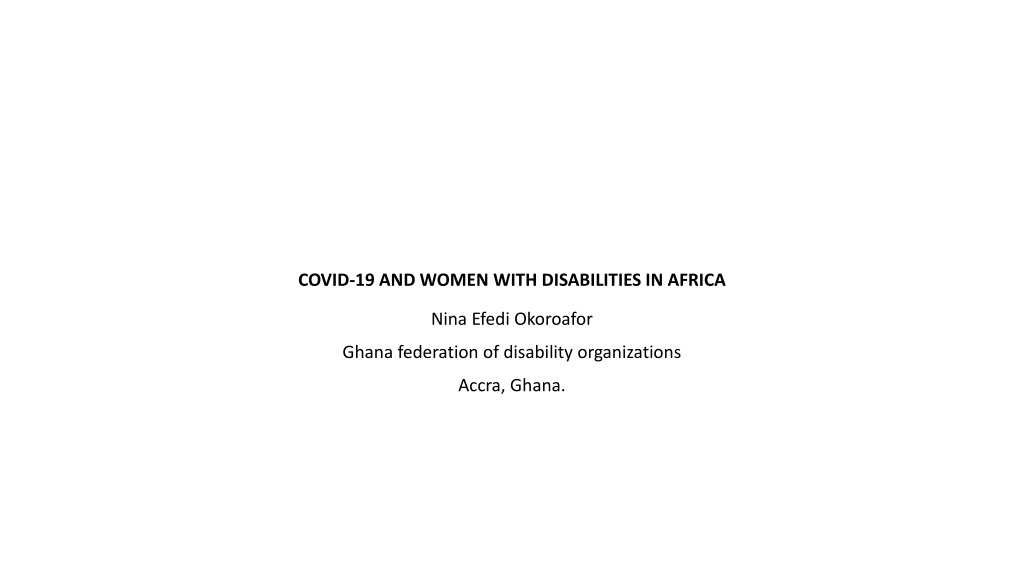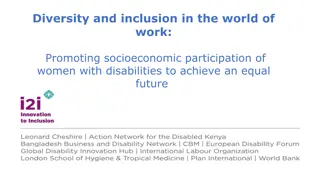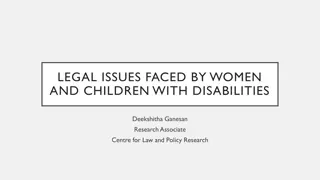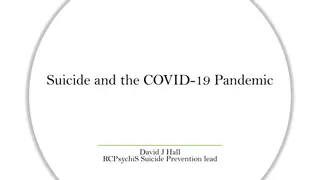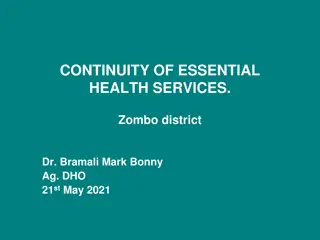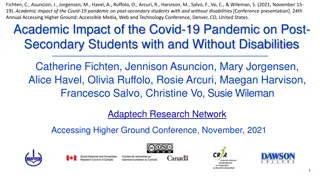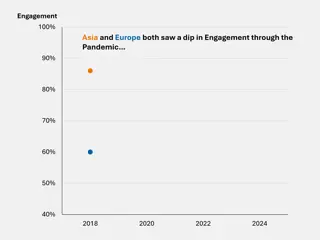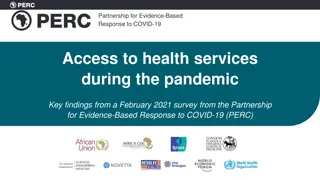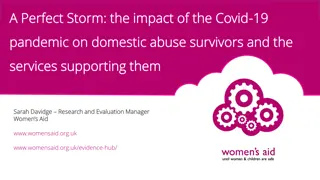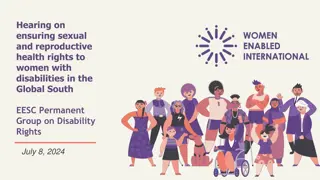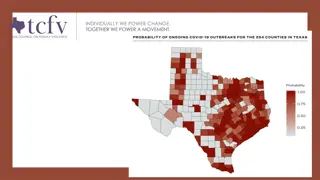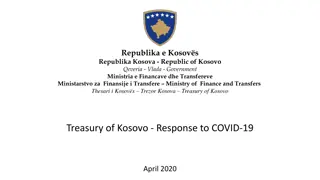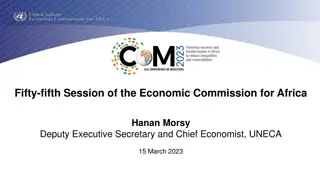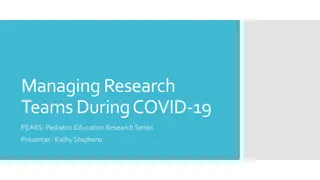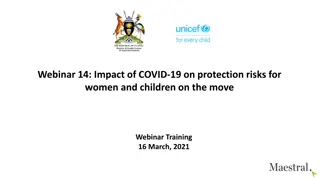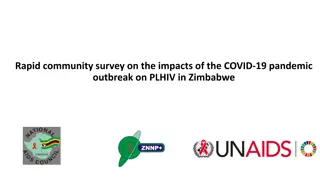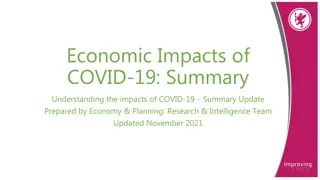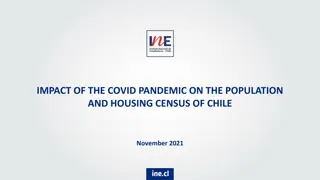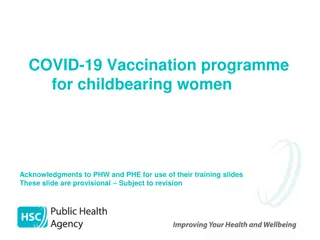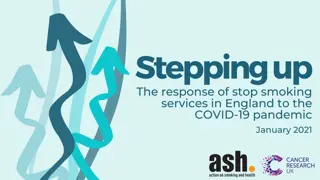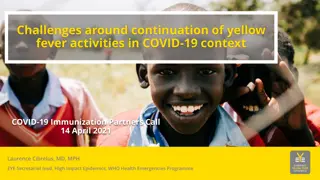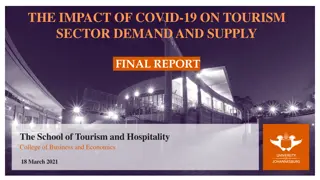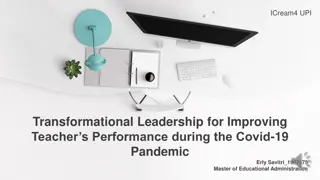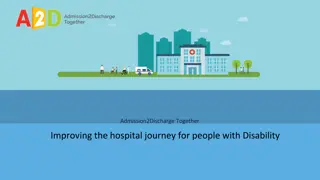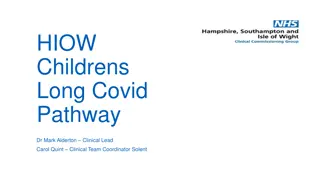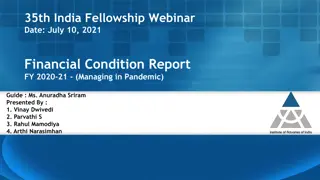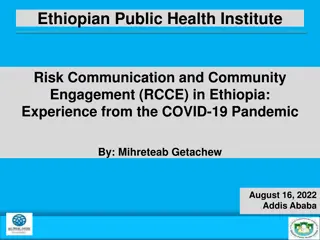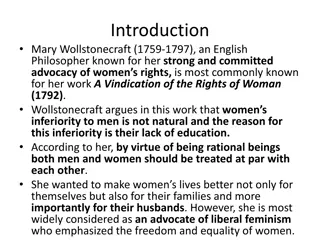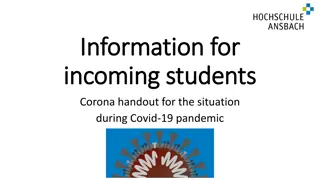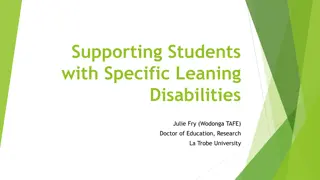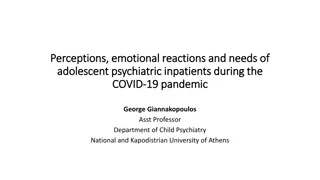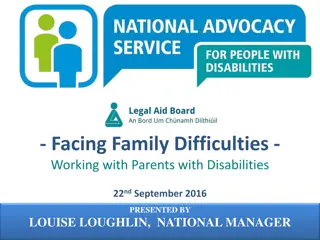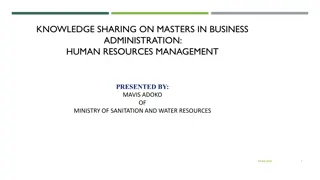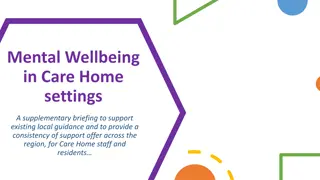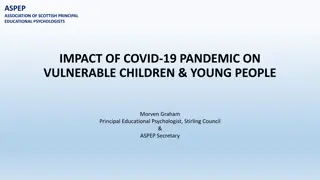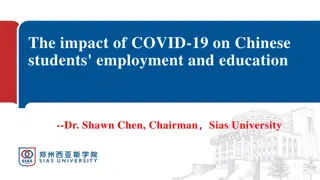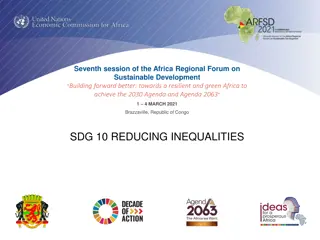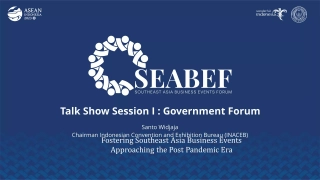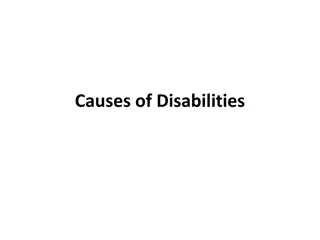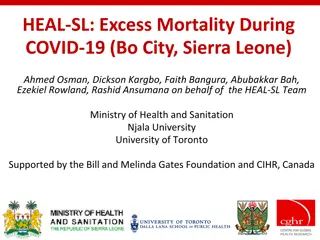Challenges Faced by Women with Disabilities in Africa During the COVID-19 Pandemic
The COVID-19 pandemic has exacerbated existing inequalities for women and girls with disabilities in Africa. Limited access to information, education, employment, and support services has further marginalized this vulnerable group. Lack of resources, absence of sign language interpretation, and reduced opportunities for livelihoods have left women with disabilities at risk of abuse and personal harm. Urgent action is needed to address their unique challenges and ensure their well-being during these unprecedented times.
Download Presentation

Please find below an Image/Link to download the presentation.
The content on the website is provided AS IS for your information and personal use only. It may not be sold, licensed, or shared on other websites without obtaining consent from the author. Download presentation by click this link. If you encounter any issues during the download, it is possible that the publisher has removed the file from their server.
E N D
Presentation Transcript
COVID-19 AND WOMEN WITH DISABILITIES IN AFRICA Nina Efedi Okoroafor Ghana federation of disability organizations Accra, Ghana.
INTRODUCTION The unprecedented global crisis that has resulted from the spread of the COVID-19 pandemic is deepening preexisting inequalities and exposing cracks in our social, economic, political and health systems. Women and girls with disabilities experience multiple and intersecting forms of discrimination and exclusion, which has an impact on their ability to meet basic needs, even in normal times . https://www.unwomen.org/-/media/headquarters/attachments/sections/library/publications/2020/policy-brief- meeting-basic-needs-of-women-and-girls-with-disabilities-during-covid-19-en.pdf?la=en&vs=1457
Outline of presentation: Access to Information on the Pandemic Education, Employment and Income Limited Access to Formal and Informal Support Services Slow response of national agencies to DPOs Conclusion and Recommendations
Access to information Generally, information regarding transmission, preventive measures and modes of seeking remedy has been slow in reaching persons with disabilities, and women with disabilities in specific. Reasons can be attributed to: Limited access to information resources Infographics Absence of sign language interpretation on national media and at healthcare centers.
Education, Employment and income Studies show that women and girls with disabilities are less likely to attend school and access formal employment than males with disabilities. See Women Enabled International, COVID-19 at the Intersection of Gender and Disability: Findings of a Global Human Rights survey, March-April 2020 (May 2020). This means that systemic barriers like lack of reasonable accommodation reduce the potential of women to access secure and sustainable livelihoods that formal education and employment afford. Hence, the need to embark on vocational/skill-based sources of income like bead making, basket weaving, and hair dressing. Unfortunately, these crafts saw a considerable plunge in sales and marketing due to markets emerging on the web, and women with disabilities lacking training to access such platforms. Consequently, these women are left to the mercy of family and friends for basic survival, further exposing them to abuse and personal harm.
Limited Access to Formal and informal Support Services Experts have continually preached social distancing, wearing of nose masks, stay at home, as critical preventive measures from COVID-19. Conversely, for women with disabilities, these measures mean a heightened version of limitations they already encounter on a daily basis. The visually impaired can no longer access guided assistance outside their homes; The hearing impaired can no longer augment their deafness through lip reading; neither can they access sign language services. Those with varying forms of physical and intellectual disabilities no longer receive the needed care from government services, friends and neighbors.
Slow Response of National Agencies to DPOs International Human Rights treaties and national policy documents on disabilities provide measures on planning for and promoting the rights of persons with disabilities in all situations, including in response to crisis of varying degree, ranging from war, to pandemics. DPOs all over Africa however report poor implementation of such provisions, and slow response to calls for action from DPOs. In Ghana for instance, the Ghana Federation for Disability Organizations made countless calls to stakeholders to implement a disability inclusive response to COVID-19, to limited effects. Most respondents to the GFD survey recorded that they either did not hear about any government sponsored stimulus package, or could not access same in time.
Conclusion and Recommendations In conclusion, women It is recommended that: *state parties and DPOs step up efforts at promoting the sharing of accessible COVID-19 related information among women and girls with disabilities. State parties, DPOs and other stakeholders actively pursue the agenda of promoting formal education, employment and ICT based trainings among women and girls with disabilities, for the purpose of promoting their employability and financial security. State parties, DPOs and families of women with disabilities enhance delivery of formal and informal support services for women with disabilities especially during times of crisis of this nature. Women with disabilities to actively pursue the attainment of skills in personal hygiene, vocational skills, and defensive skills as mitigation measures from situations of abuse. State parties to engage leadership of women and girls with disabilities in planning responses to situations of risks and crisis. After all, nothing about us without us .
